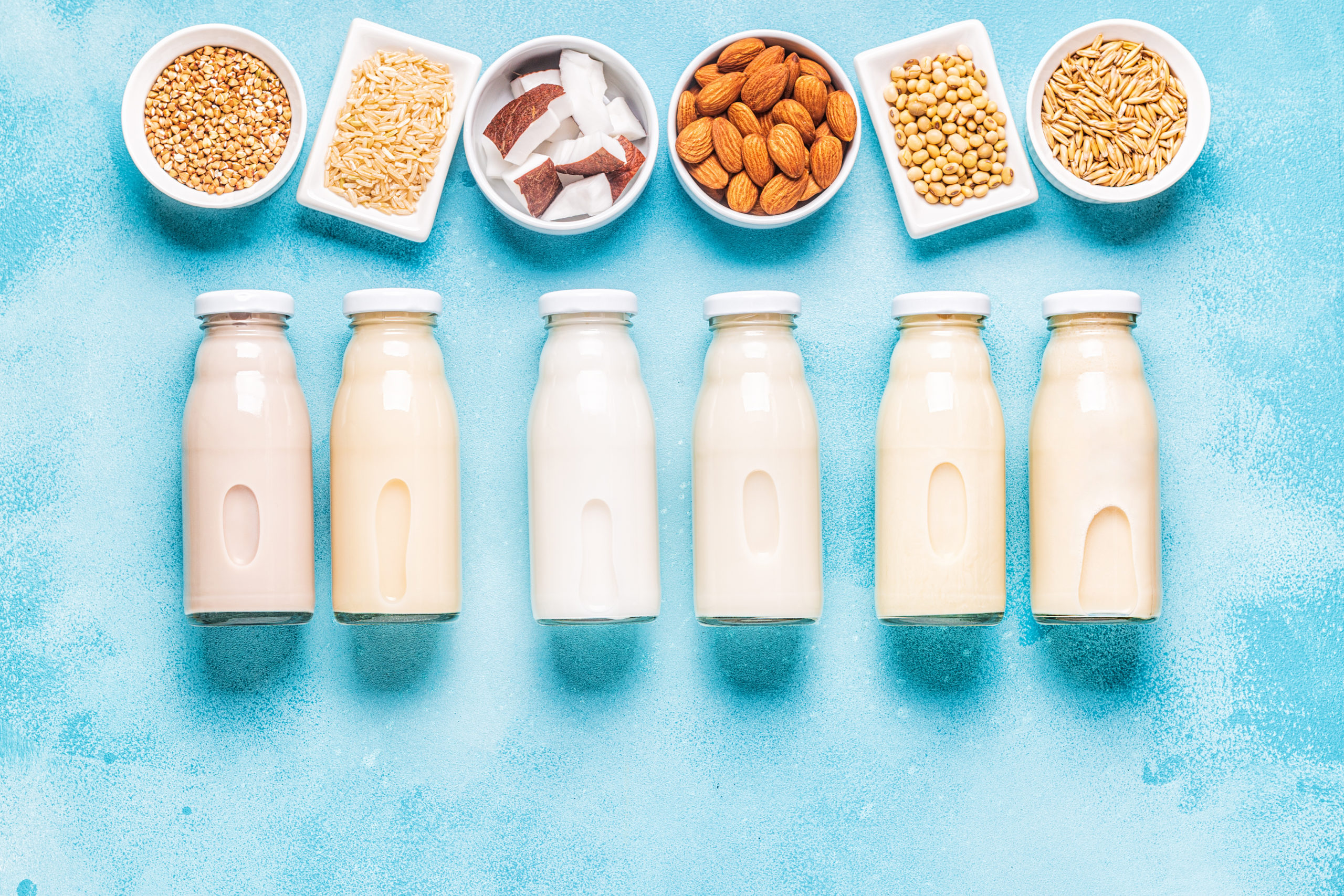Dairy-free milk is having a moment. The milk-alternative popularity is attributed to its many health benefits and positive environmental impacts. If you’re in the market for a healthy and tasty milk alternative, take a look at this helpful guide on the most popular milk alternatives available to you.
Animal-Free Protein Milk

Amazingly, it is possible to find a milk alternative with a real dairy taste. StriveForBetter milk offers a protein-enriched “milk from the future” that will impress anyone seeking a replacement for traditional milk. This milk comes in several different versions, including an almond and oat option. Additionally, it’s more sustainable than traditional milk alternatives, as it uses 99 percent less water and comes in packaging made of 97 percent renewable materials. So if you’re on the fence about choosing a milk alternative, consider a protein-packed option that’s plant-based, creamy, and delicious.
Soy Milk
Soy milk is touted as one of the first milk alternatives to hit the market. Made from soybeans, it’s an excellent source of protein and can help improve heart health, regulate blood sugar levels, and support bone health. Soy milk contains polyunsaturated fatty acids, which are beneficial for heart health. These fatty acids can help lower harmful cholesterol levels and reduce the risk of heart disease. Plus, soy milk contains carbohydrates that are digested slowly, which helps regulate blood sugar levels. This makes soy milk a good choice for people with diabetes or anyone trying to manage their blood sugar. Calcium, magnesium, and phosphorus are also components of soy milk, helping keep bones strong and reducing the risk of osteoporosis.
Coconut Milk

Coconut milk is dairy-free milk made from the grated “meat” of a coconut. However, coconut milk is somewhat high in saturated fat, unlike other dairy-free milk. However, it contains lauric acid, which has been shown to have antimicrobial and antibacterial properties. This means that coconut milk may be beneficial for people with compromised immune systems or those who are susceptible to infection. Coconut milk is also a good source of protein and minerals such as potassium and magnesium. Regarding taste, coconut milk is refreshing and makes a perfect addition to smoothies and juices.
Oat Milk
Oat milk has been surging in popularity lately. The craze is merited, as oat milk is one of the creamiest milk alternative options on store shelves right now. Oat milk’s dairy-like consistency makes it a great ingredient alternative for ice creams and coffee creamers. Oat milk consists of B vitamins such as riboflavin and Vitamin B12. These vitamins impact your energy levels and brain function. Additionally, oat milk helps lower bad cholesterol levels and may improve heart and bone health over time. Oat milk is also high in fiber, a key factor in gastrointestinal health.
Almond Milk
Almond milk remains one of the most sought-after milk alternatives on the market. Almond milk is a non-dairy milk alternative high in vitamin E., an important antioxidant. It has been shown to improve heart health and reduce the risk of type 2 diabetes. It has a mild taste that combines perfectly with coffee and cereals. Almond milk has also been shown to improve heart health by lowering bad cholesterol levels and reducing inflammation when used as a replacement for dairy milk. Plus, it may help reduce the risk of type 2 diabetes by improving blood sugar control.
One notable benefit of almond milk is that it is low in calories. A cup of almond milk contains only 60 calories, whereas a cup of cow’s milk contains about 150 calories. This makes almond milk a good choice for those trying to manage their daily calorie intake. Almond milk is also a good source of protein. A cup of almond milk contains about 4 grams of protein, equivalent to the amount found in a glass of cow’s milk.
Milk alternatives are a great source of nutrients and offer notable health benefits. More importantly, they taste just as delicious, if not more, than dairy milk. If you’re looking to cut lactose out of your diet, consider one of these delicious milk alternative options.

